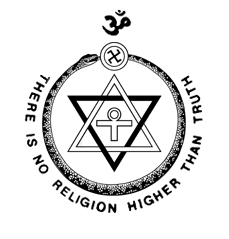A Quote by Jean-Paul Sartre
The consciousness that says 'I am' is not the consciousness that thinks.
Quote Topics
Related Quotes
You are so accustomed to think of yourselves as bodies having consciousness that you just cannot imagine consciousness as having bodies. Once you realize that bodily existence is but a state of mind, a movement in consciousness, that the ocean of consciousness is infinite and eternal, and that, when in touch with consciousness, you are the witness only, you will be able to withdraw beyond consciousness altogether.
One can ask why the I has to appear in the cogito {Descartes’ argument “I think therefore I am.}, since the cogito, if used rightly, is the awareness of pure consciousness, not directed at any fact or action. In fact the I is not necessary here, since it is never united directly to consciousness. One can even imagine a pure and self-aware consciousness which thinks of itself as impersonal spontaneity.
I do think it's important to distinguish between intentionalism about consciousness and externalism about consciousness. Intentionalism says that consciousness is a form of intentionality - the representation of things to the mind. Externalism says that these things have to exist in order for them to be represented, or presented. These are different views.
Since consciousness is the basis of all reality, any shift in consciousness changes every aspect of our reality. Reality is created by consciousness differentiating into cognition, moods, emotions, perceptions, behavior, speech, social interactions, environment, interaction with the forces of nature, and biology. As consciousness evolves, these different aspects of consciousness also change.
The student should bear in mind that the very essence of consciousness is constantly to identify itself with the Not-Self, and as constantly to re-assert itself by rejecting the Not-Self. Consciousness, in fact, consists of this alternating assertion and negation - "I am this" - "I am not this." Hence consciousness is, and causes in matter, the attracting and repelling that we call a vibration.
I find that somehow, by shifting the focus of attention, I become the very thing I look at, and experience the kind of consciousness it has; I become the inner witness of the thing. I call this capacity of entering other focal points of consciousness, love; you may give it any name you like. Love says "I am everything". Wisdom says "I am nothing". Between the two, my life flows. Since at any point of time and space I can be both the subject and the object of experience, I express it by saying that I am both, and neither, and beyond both.




































